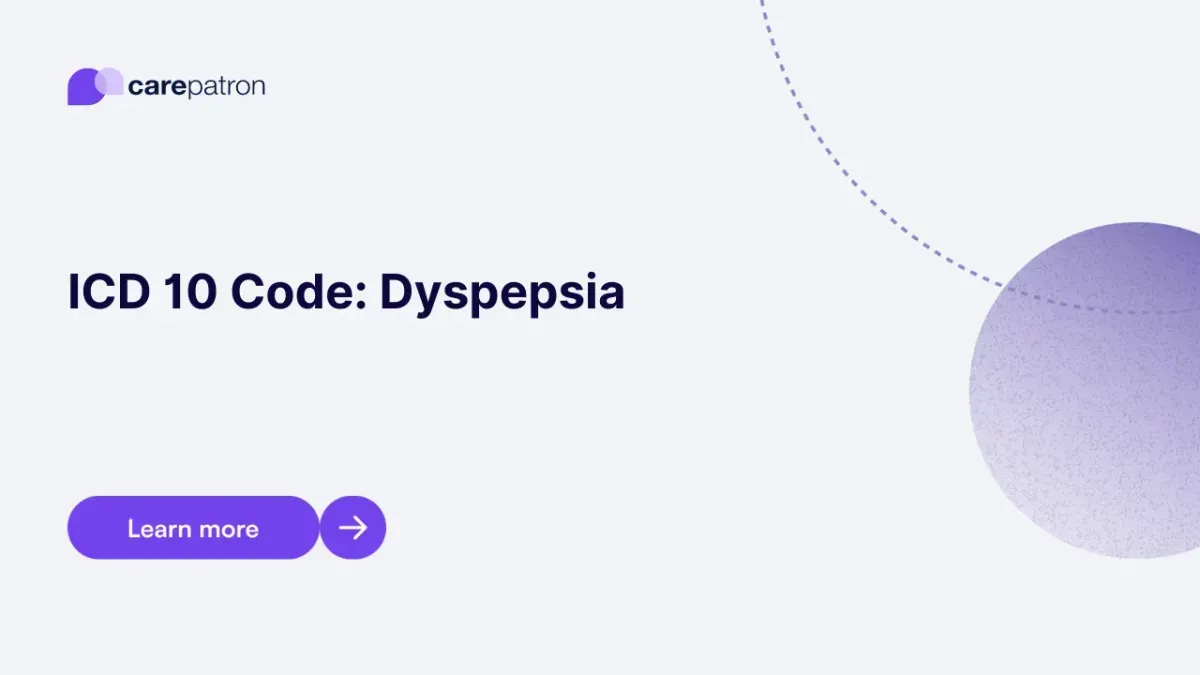
Dyspepsia ICD-10-CM Codes
Read this short guide to learn about Dyspepsia ICD codes you can use!
Use Code
Commonly asked questions
No. Dyspepsia and Gastritis are not the same, but they are closely associated because a person can have both simultaneously. The inflammation of the stomach lining characterizes Gastritis, and it can be caused by certain medications, an overabundance of stomach acid, or bacterial infections. In contrast, Dyspepsia happens for no apparent reason and may disappear and come back anytime.
They will conduct blood tests, breath tests, upper endoscopies, and gastric emptying studies to check for any complications causing indigestion. If they do not find any trace of disease but a patient has been experiencing symptoms of Dyspepsia for over three months, they will be diagnosed with Functional Dyspepsia.
The most basic way to manage or treat Dyspepsia symptoms is to take medication that reduces stomach acid and boosts motility. Herbal medicine and products such as tea can help, too!
EHR and practice management software
Get started for free
*No credit card required
Free
$0/usd
Unlimited clients
Telehealth
1GB of storage
Client portal text
Automated billing and online payments
